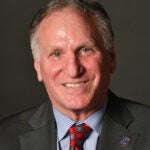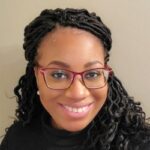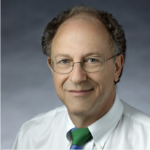Career Development Core
The Career Development Core aims to use a distance-learning approach to provide a mentoring program and a modular curriculum providing foundational knowledge in aging and cancer.
- Mentorship Curriculum: I-REACH will use the Center for the Improvement of Mentored Experiences in Research (CIMER) curriculum, an evidence-based mentorship program. The curriculum includes discussing mentoring philosophy and planning, enhancing work-life integration, promoting professional development and developing mentorship contracts and relationships. This training will be required for all Scholars and mentors and will be provided to all I-REACH faculty.
- Modular Curriculum: This curriculum will integrate aging and cancer in a multi-level framework, highlighting the opportunities for research, resources and collaboration.
For any questions, concerns, or thoughts regarding the Career Development Core, please fill out the Inquiry Form by clicking the button below.
We are always trying to improve our I-REACH Cores and Programs to best support your research and careers. To provide constructive feedback regarding the Career Development Core, please fill out the User Satisfaction Survey below.

Cancer Health Outcomes, Cancer Prevention and Control, Epidemiology, Global Oncology. Dr. Lucile Adams-Campbell’s research focuses on aging over the life course and how aging and cancer interact to affect cancer outcomes and the health of older cancer survivors.

Cancer Biomarkers, Cancer Outcomes, Epidemiology, Training. Dr. Dash’s research primarily focuses on molecular epidemiology and cancer prevention and control.

Geriatrics, Gerontology, Psychology, Health Outcomes. Dr. Lichtenberg is a Geriatric Neuropsychologist and the president of the Gerontological Society of America. His research focuses on socio-behavioral aspects of aging, and he uses his expertise to study outcomes in aging and disease.

Cancer and Aging, Geriatrics, Survivorship, Policy, Cancer Outcomes. Dr. Mandelblatt’s research focuses on heterogeneity in life course aging and the effects of cancer and its treatments on clinically important survivorship outcomes, including functional, cognitive, and physical aging and development of frailty.

Health Outcomes, Healthcare Communication, Multimorbidity. Dr. Mitchell’s researches health behaviors and healthcare communication strategies to optimize well-being and longevity for older adults.

Cardiovascular Disease, Clinical Pharmacology, Environmental Toxicology, Health Outcomes, Nephrology, Pathophysiology. Dr. Uman’s research spans several disciplines, including translational physiology and pharmacology, women’s health, chronic diseases in aging, and community-engaged studies on health outcomes and leads mentorship training.
